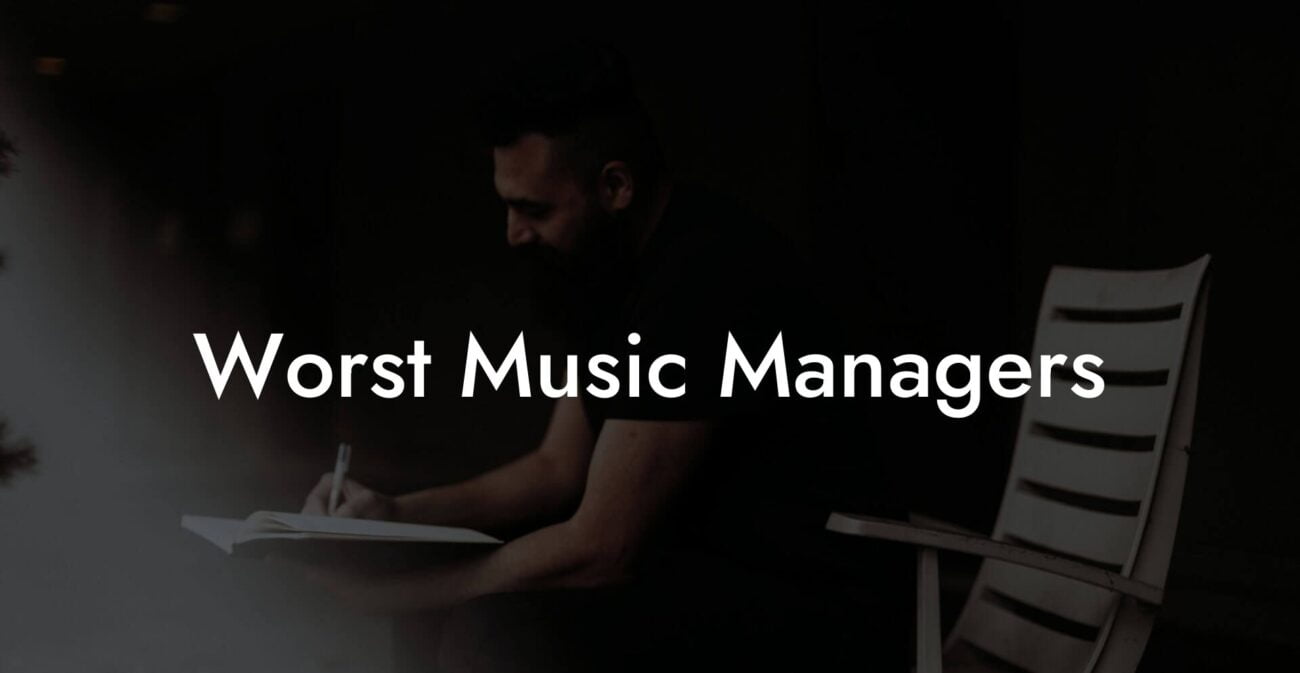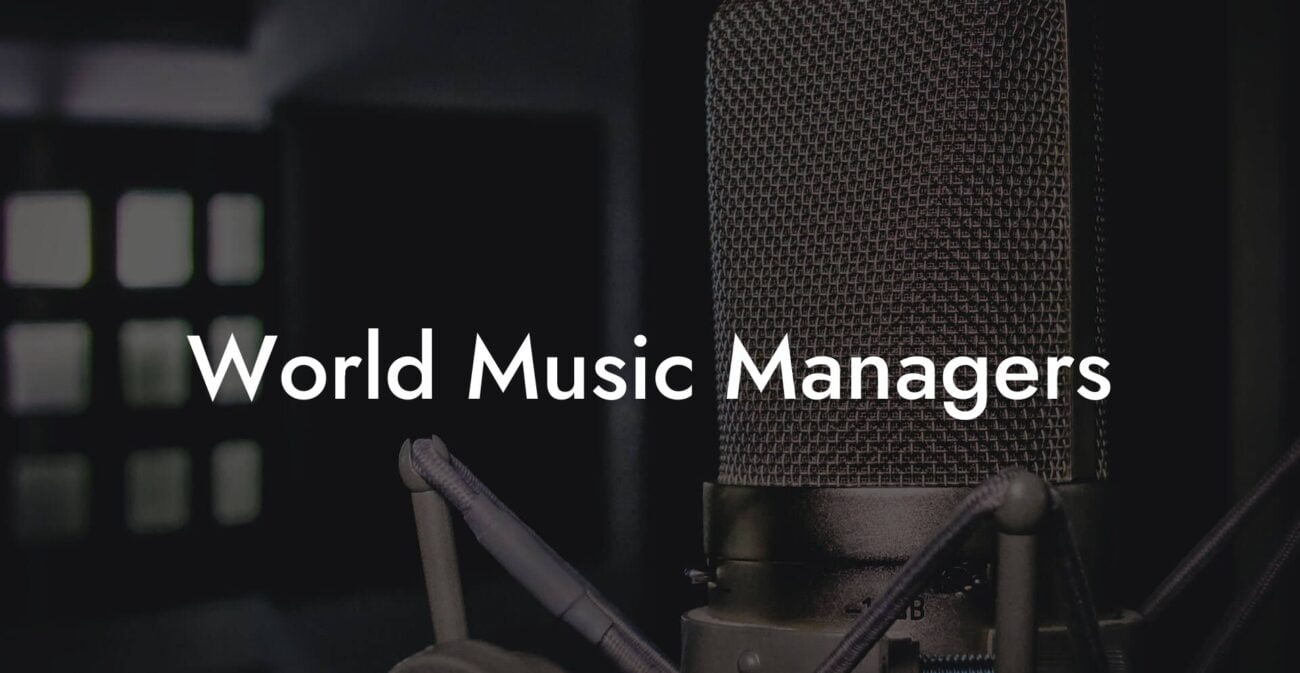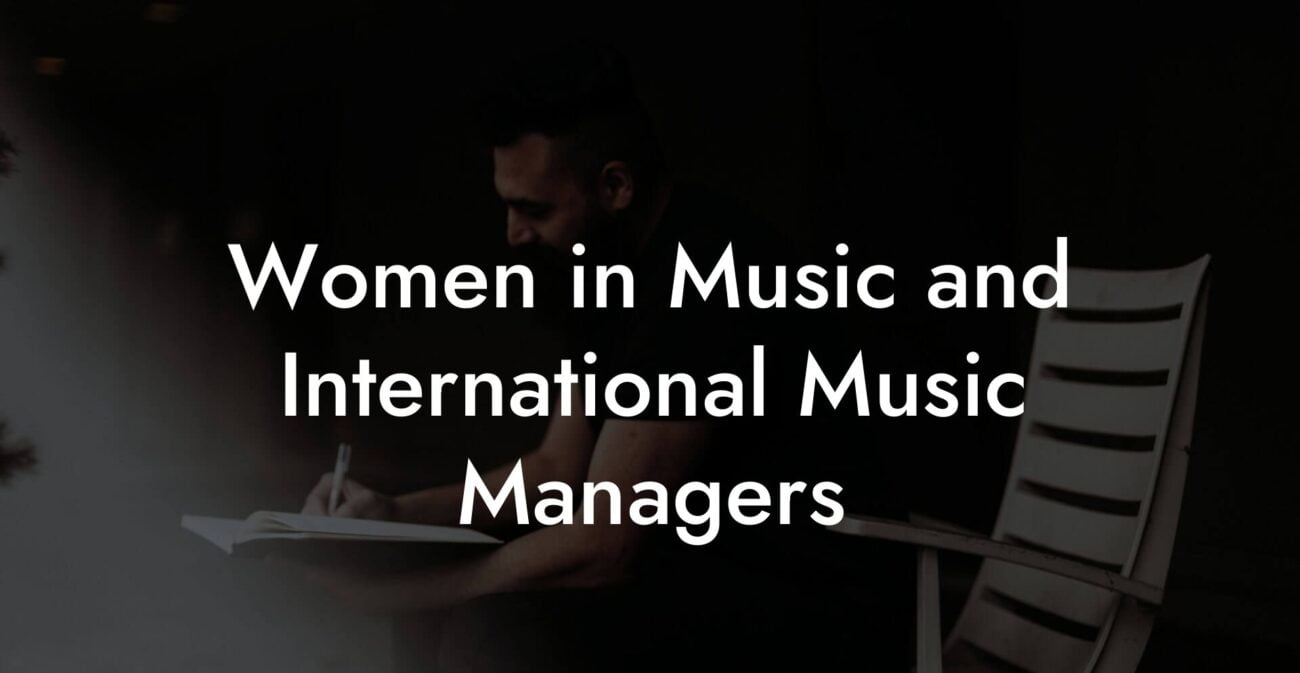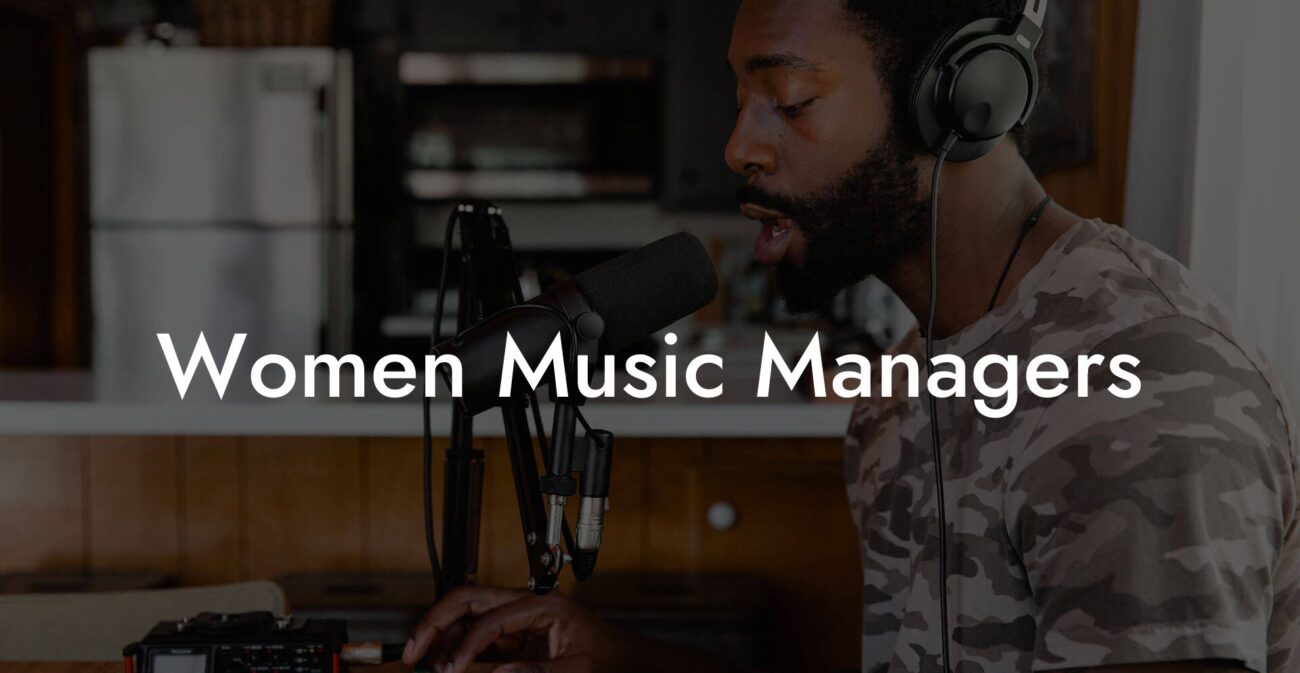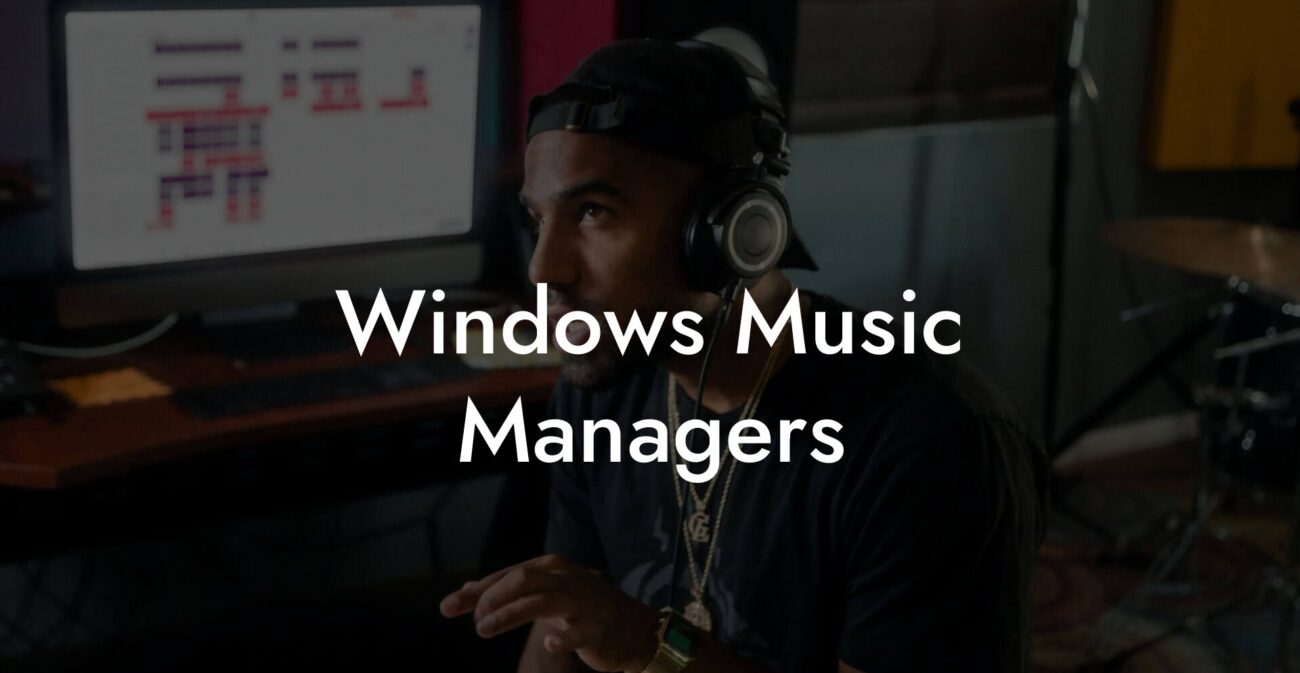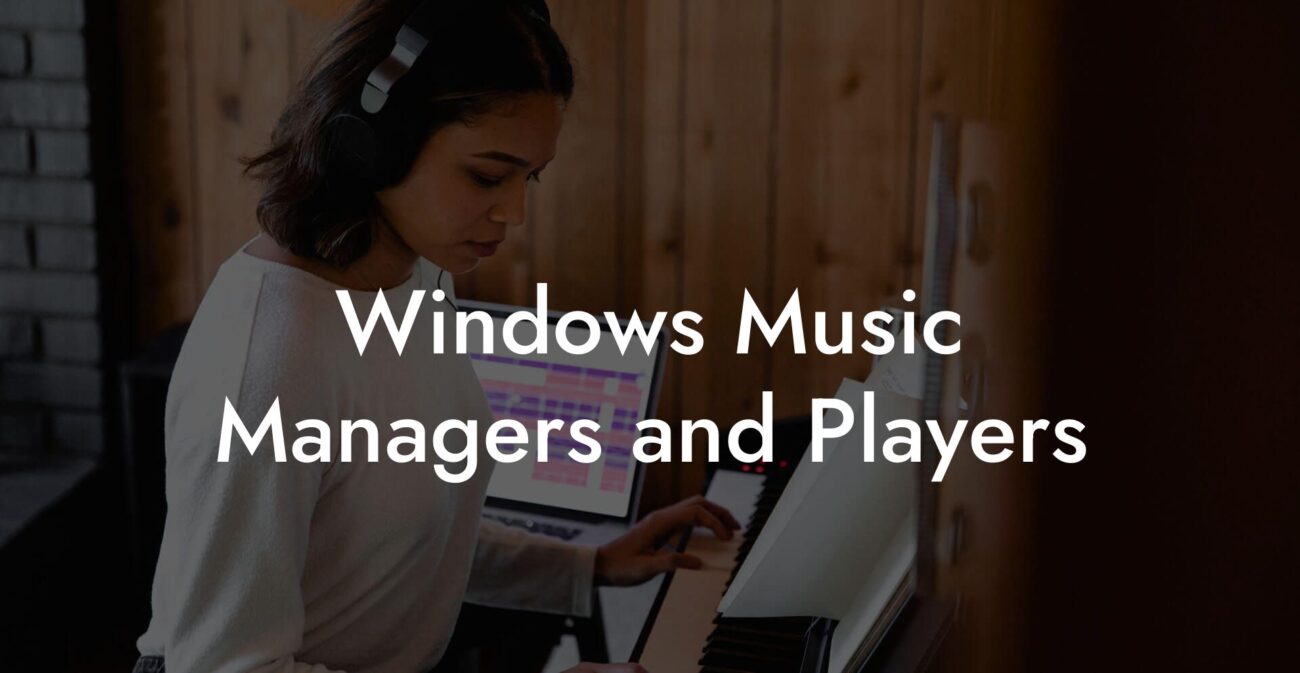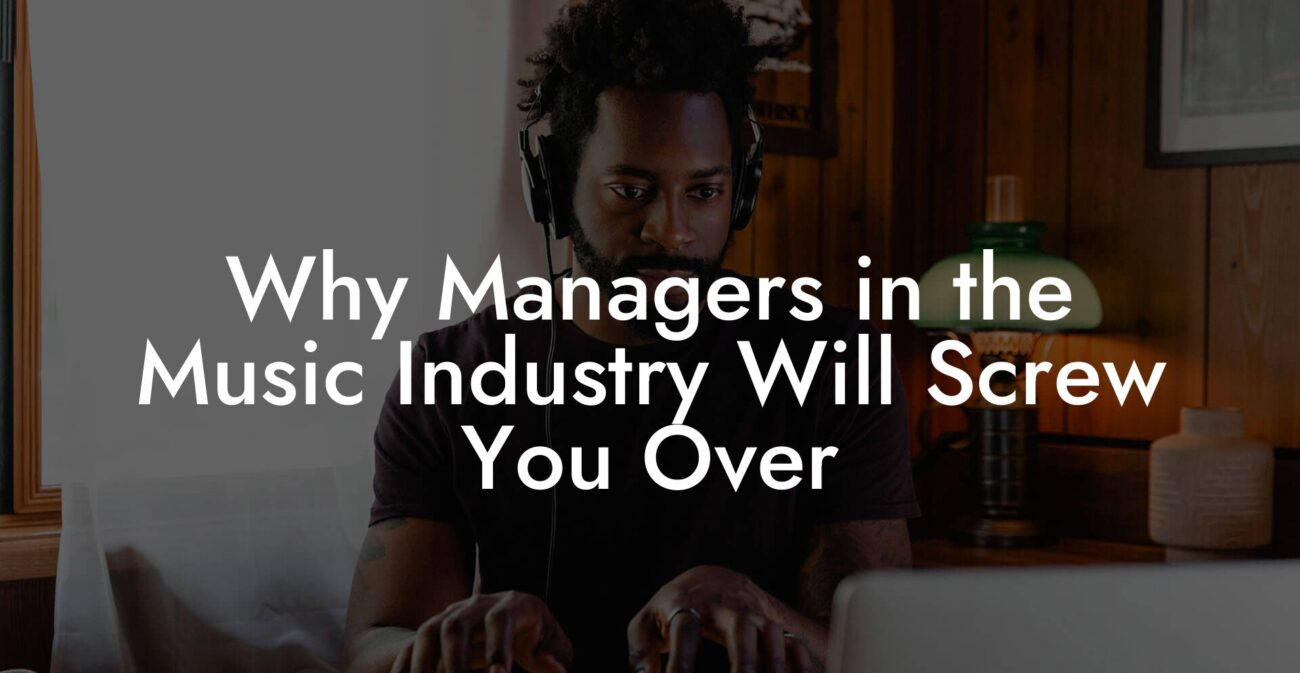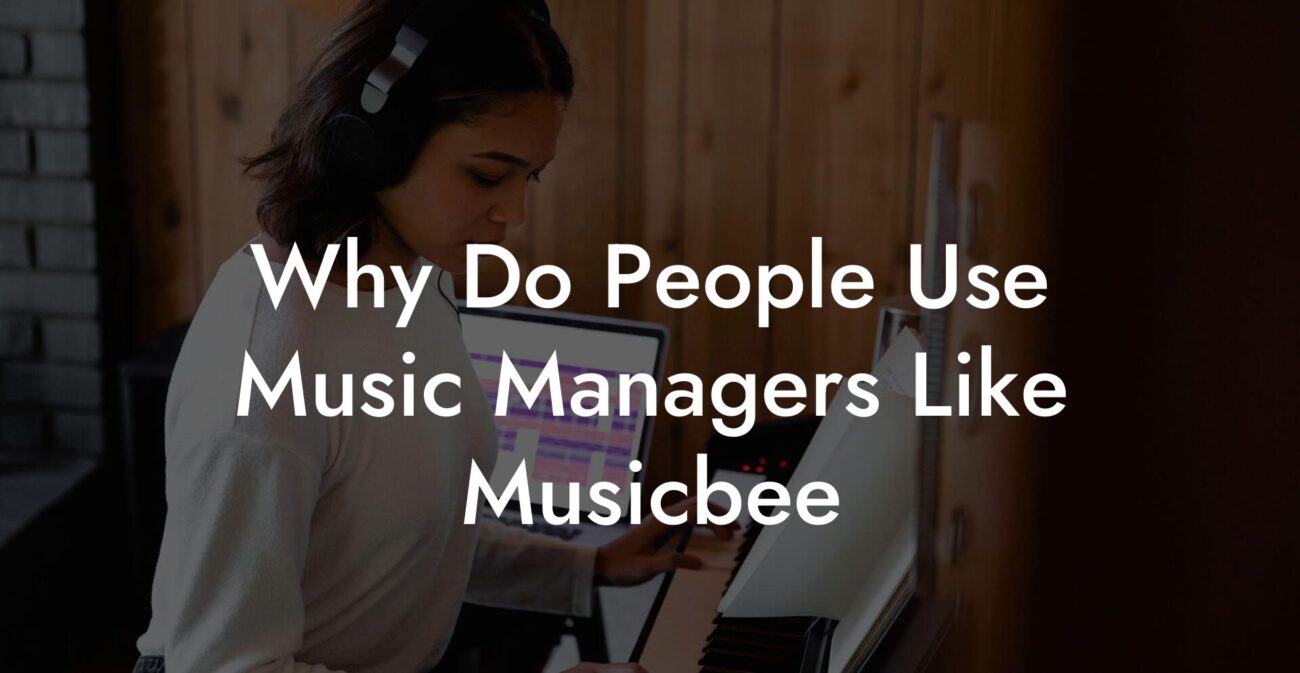Songwriting Advice
What Percentage Do Music Managers Take
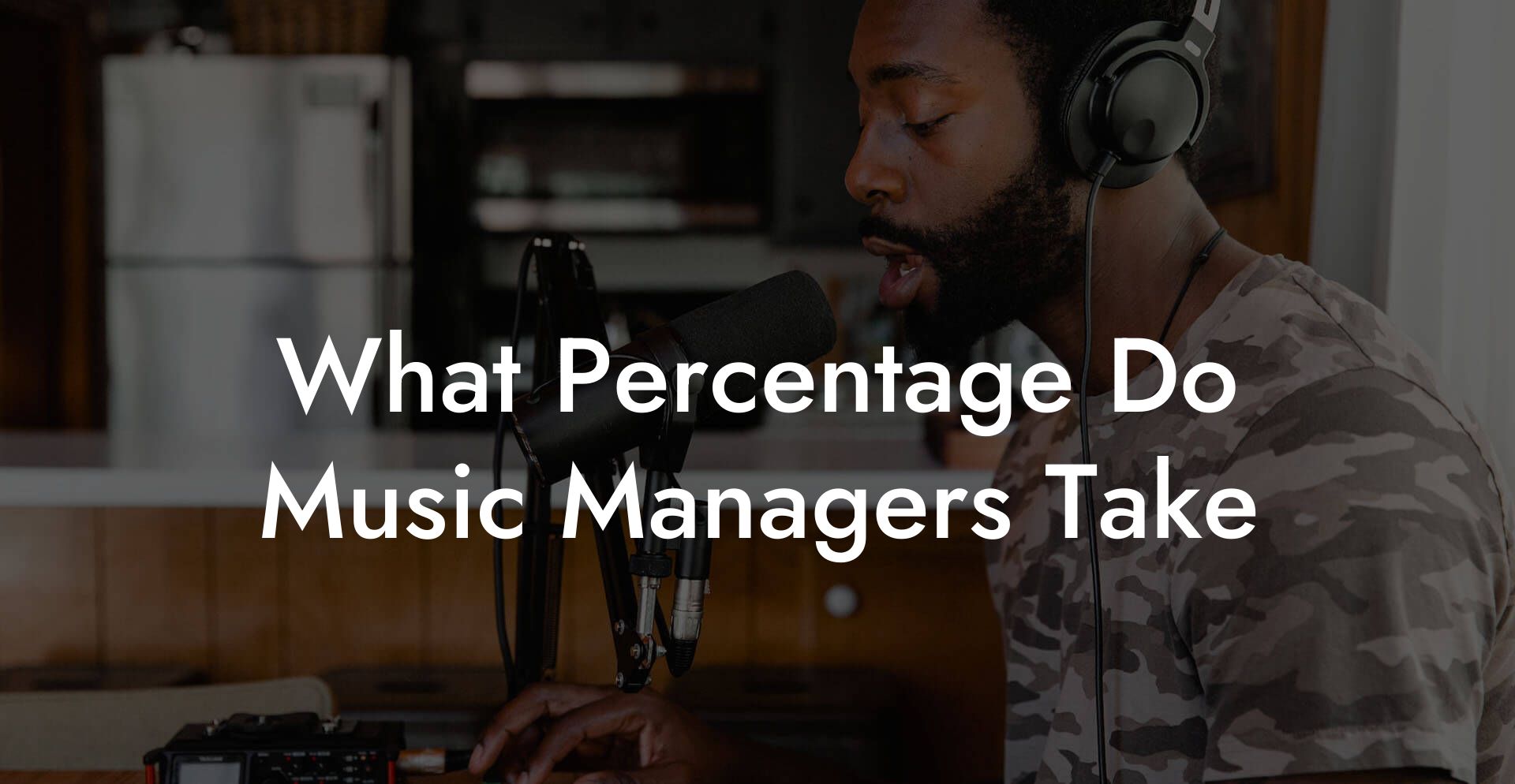
So, you’re diving into the music biz and wondering, “What percentage do music managers take?” Welcome to the backstage pass of the music industry, where dollar signs, contracts, and endless creative energy converge. Whether you’re a bedroom songwriter turning your tunes into chartbusters or an emerging artist trying to navigate your first management deal, we’re about to break down the mystery behind the magic of music management, and trust us, it’s more than just a few percentage points.
Quick Interruption: Ever wondered how huge artists end up fighting for their own songs? The answer is in the fine print. Learn the lines that protect you. Own your masters. Keep royalties. Keep playing shows without moving back in with Mom. Find out more →
Quick Interruption: Ever wondered how huge artists end up fighting for their own songs? The answer is in the fine print. Learn the lines that protect you. Own your masters. Keep royalties. Keep playing shows without moving back in with Mom. Find out more →
Quick Links to Useful Sections
- Understanding the Role of a Music Manager
- How Do Music Managers Get Paid?
- Standard Commission Percentages Explained
- Factors Influencing Music Manager Commissions
- Your Career Stage
- Manager’s Reputation and Experience
- Scope of Services Provided
- Negotiation Skills
- Negotiating Your Music Manager Contract
- Do Your Homework
- Define Your Goals
- Consider a Trial Period
- Be Ready to Walk Away
- Common Pitfalls and Misconceptions
- Case Studies: Music Manager Success Stories
- Case Study 1: From Garage Band to Global Tours
- Case Study 2: The Rise of a Viral Sensation
- Case Study 3: Reinventing the Indie Scene
- A Look at Evolving Industry Trends
- Resources and Community Support: Your Next Steps
- Frequently Asked Questions About Music Manager Percentages
- Your Future With a Fair Music Management Partnership
Understanding the Role of a Music Manager
Before we jump into the nitty-gritty of percentages, let’s chat about what a music manager really does. Think of them as your personal guide, cheerleader, and sometimes even your therapist, all rolled into one. A music manager is the mastermind behind the scenes, handling everything from touring schedules and record deals to social media presence and brand partnerships.
In a world where Spotify playlists and viral TikToks can make or break your career overnight, having someone who knows the ins and outs of the industry is priceless. Your manager not only helps you navigate the business side of things, but they also act as a sounding board for your creative ideas. They’re out there hustling, networking, and occasionally arguing with booking agents so you can focus on perfecting that killer chorus.
It’s important to recognize that the manager’s work spans a wide spectrum, from booking shows and negotiating contracts to offering advice and managing your personal brand. Even when you’re knee-deep in lyric writing for your next hit, having a guide in your corner can mean the difference between a career that skyrockets and one that stalls.
How Do Music Managers Get Paid?
Now that you’re in the know about what a manager does, let’s talk money. How exactly do these industry wizards get paid? Essentially, a music manager earns a commission from your earnings. This isn’t a fixed fee; it’s a percentage of the income you generate from your music career. And no, it’s not like buying a latte, this is a long-term partnership where your manager rides the ups and downs of your success alongside you.
Typically, the payment model is based on a percentage, often ranging between 10% to 20% of your gross earnings. But don't let that number scare you off. While a segment of your hard-earned cash goes to your manager, it’s an investment in your future that fuels their relentless efforts to propel your career forward. After all, how else are they going to cover the countless hours spent hustling, negotiating, and making sure your name is on everyone’s lips?
Remember, these numbers can shift depending on factors such as the manager’s experience, your career stage, and the scope of their services. Some managers might charge a flat fee, while others work exclusively on commission. The key here is communication and clarity. Ensure both you and your manager are on the same page from the start, so there are no surprises when it comes to your earnings.
Standard Commission Percentages Explained
Let’s break down the numbers. The “industry standard” for a music manager’s commission is commonly quoted as 15% of your gross earnings. But here's the kicker, not everyone gets a cut from the same pie. Depending on your level of success, the type of work your manager is doing, and even geographical differences, percentages can vary.
For emerging artists, managers might take a slightly higher cut, sometimes even up to 20%, because they’re putting in extra effort to help establish your presence in a crowded market. Meanwhile, seasoned artists with a proven track record might negotiate a lower rate, around 10% to 12%, especially if they already have a strong business acumen and can handle a good part of their own management.
It's not unusual for commission percentages to be tiered, where the rate might change once you hit certain revenue thresholds. For example, you might start at 15% until you earn a set amount, after which the percentage drops as your income grows. This sliding scale model rewards both the artist and the manager as the career takes off.
Also, consider that a manager’s commission isn’t just a single fee taken from every dollar earned, it can be split among multiple revenue streams. This means the percentage may apply differently to earnings from album sales, live performances, merchandise, endorsements, and even sync deals. Always clarify with your manager how the rates apply across various revenue streams so that you both have a clear understanding of the financial landscape.
Factors Influencing Music Manager Commissions
The percentage your music manager takes isn’t set in stone; it’s influenced by several key factors. These variables can swing the percentage up or down and play a pivotal role in structuring your management deal.
Your Career Stage
As an emerging artist, you might find that managers charge a premium because they’re taking on more risk, investing time and resources to build your career from scratch. Conversely, established artists with a proven fan base and revenue streams might negotiate lower percentages since the manager’s work involves fine-tuning an already-successful machine.
Manager’s Reputation and Experience
A seasoned manager with a deep portfolio of success stories will likely command higher percentages. Their industry connections, insight, and proven track record can add immense value, justifying the commission. If you’re lucky enough to snag someone with a legendary status in the industry, expect that their fee is as high as their reputation.
Scope of Services Provided
Not all managers do the same job. Some prefer to stick solely to booking gigs and negotiating contracts, while others offer a full-service package that includes branding, marketing, social media management, and even financial planning. The broader the scope, the higher the commission might be. It’s all about how much “extra” work you’re asking your manager to handle.
Negotiation Skills
At the end of the day, the percentage is subject to negotiation. If you’re armed with a clear understanding of your needs and have done your homework on industry standards, you’re in a stronger position to negotiate a fair deal. For instance, if you’ve already garnered some buzz or secured a few notable gigs, you might leverage that to drive down the commission rate.
Understanding these factors empowers you to assess whether the money you’re handing over is justified by the value and effort your manager brings. It also sets the stage for what kind of manager-artist relationship you want to cultivate, one that’s transparent, equitable, and, ideally, mutually beneficial.
Negotiating Your Music Manager Contract
Negotiation might seem intimidating, especially if you’re new to the industry. However, understanding the leverage you have can transform the experience from daunting to downright empowering. Here are some tips to help you navigate the process:
Do Your Homework
Before jumping into negotiations, arm yourself with knowledge. Research typical commission rates, review industry case studies, and talk to fellow musicians about their experiences. The more informed you are, the better prepared you’ll be to negotiate a fair deal.
Define Your Goals
Get clear on what you expect from a management relationship. Is it mainly booking gigs? Or do you need a full-service manager who also helps with marketing, digital presence, and business growth? Laying out your expectations makes it easier to determine a commission structure that aligns with the level of service.
Consider a Trial Period
One way to protect yourself is by instituting a trial period with your manager. This trial phase allows both parties to evaluate the relationship before committing to a long-term contract. It’s like dating before you get married, a little trial run can help reveal the true value of what each party brings to the table.
Be Ready to Walk Away
It can be hard to imagine a world without a supportive manager, but if the terms aren’t right, don’t be afraid to explore other options. A good manager will be flexible and willing to negotiate terms that benefit both parties. Remember, this is a partnership, so it must feel mutually advantageous.
Negotiating isn’t just about lowering percentages; it’s about constructing a balanced relationship that honors your creative vision while ensuring your manager is adequately compensated for their dedication and network.
Common Pitfalls and Misconceptions
As you journey through negotiations and contracts, there are a few pitfalls and misconceptions that you need to be aware of:
- One-Size-Fits-All Percentages: The oft-quoted 15% isn’t a magic number. Every artist’s situation is unique, and so is every manager’s fee structure.
- Hidden Costs: Always read the fine print. Some contracts hide fees for additional services, administrative work, or even early termination clauses.
- Lack of Clear Milestones: Ensure that your contract outlines clear performance goals and milestones. It’s crucial to have benchmarks that determine when a rate might change or when additional services are triggered.
- Miscommunication: Misunderstandings about what is included in your manager’s services can lead to disagreements down the line. Be explicit in writing about what the fee covers and the expectations for both parties.
- Overlooking Experience: It’s easy to focus solely on the numbers, but remember that an experienced manager might secure opportunities that dramatically outweigh their commission fee in the long run.
Staying vigilant about these pitfalls and ensuring you have legal and professional advice during contract negotiations can save you from future headaches, and keep your creative energy flowing.
Case Studies: Music Manager Success Stories
Let’s spotlight a few real-world examples that illustrate how the right music manager and the right negotiation can change an artist’s trajectory.
Case Study 1: From Garage Band to Global Tours
Meet Alex, a talented singer-songwriter who started recording tracks in a friend’s garage. Initially, his manager took a higher commission rate of 18% because the risk was high and the workload was immense, getting Alex into open mic nights, local radio stations, and digital platforms. As Alex’s popularity grew and his earnings diversified into streaming royalties, live royalties, and merchandise sales, the commission was renegotiated to a sliding scale that eventually dropped below the industry standard. Today, Alex’s tours span continents, a success credited not just to his undeniable talent but also to the strategic partnership he built with his manager.
Case Study 2: The Rise of a Viral Sensation
Then there’s Jamie, a bedroom producer whose beat suddenly went viral on social media. Her manager, who had been with her since day one, took a steady 15% commission. Jamie’s meteoric rise to fame through viral TikTok challenges and massive streaming numbers highlighted the balance between fair compensation and the manager’s role in sustaining growth. The transparent deal allowed Jamie’s creative output to flourish while ensuring that her manager had the resources to invest in further promotion and development.
Case Study 3: Reinventing the Indie Scene
Indie artist Morgan cleverly negotiated a contract that was heavily performance-based. With a base commission of 12%, the deal featured bonuses for reaching specific revenue milestones. Morgan’s manager focused on forging key industry connections and securing strategically timed releases. The innovative contract allowed both parties to thrive, reinforcing that music management isn’t just a financial transaction, it’s a true partnership that evolves as an artist’s career shifts gears.
These case studies underscore how thoughtful negotiations, clear communication, and a firm grasp on industry norms can empower artists to forge successful, lasting partnerships with their managers.
A Look at Evolving Industry Trends
The music industry is in a constant state of flux, and management models are evolving right alongside digital innovations. With the rise of streaming platforms, social media influencers, and DIY production tools, traditional commission structures are adapting to fit the new era of independent artistry.
Many modern managers are embracing data-driven strategies to optimize revenue streams. Instead of relying solely on traditional revenue sources like touring and album sales, today’s managers are increasingly focused on digital monetization, think YouTube ad revenue, brand sponsorships, and even virtual concerts. As these additional revenue streams grow, so does the complexity of calculating commissions.
Furthermore, industry trends now favor transparency and flexibility. More artists are insisting on contracts that allow for a regular review and renovation of terms, ensuring that as their success grows, their financial commitments adjust accordingly. This shift toward more collaborative, dynamic management arrangements reflects both the fast-paced nature of digital media and a broader cultural movement toward equity and openness.
Emerging trends also see managers who previously operated under the radar stepping into specialized roles. For example, you’ll see managers who focus solely on digital marketing strategy or monetization in virtual spaces. These modern-day specialists reflect the evolving demands of new-generation artists, where every beat, post, and viral moment contributes to a comprehensive revenue model.
Resources and Community Support: Your Next Steps
Now that you’ve got the lowdown on what percentage do music managers take, it’s time to take action. Building a successful career in music is a team effort, and while understanding commissions is critical, so is leveraging every available resource at your disposal.
First, consider connecting with fellow musicians and industry professionals through online communities, social media groups, and local meet-ups. Platforms like LinkedIn, Instagram, and even Discord have vibrant communities where creatives exchange advice and stories about negotiating management contracts, growing their brand, and ultimately, thriving in the competitive music marketplace.
Next, tap into online resources. Websites, podcasts, and blogs dedicated to the music business can provide invaluable insights into contract negotiations, royalty management, and evolving industry trends. Keep an eye on thought leaders who share their experiences and analyses of what it takes to build a sustainable career in music.
Additionally, consider seeking legal advice or professional consultations before signing any contracts. Having experts review your contract can help ensure that your interests are well-protected from the get-go.
Finally, remember that your journey is personal. There’s no one-size-fits-all solution in music management. Use the information here as a springboard to craft a contract and partnership that feels right for you, one that respects your creative vision while giving your manager the confidence and incentive to boost your career.
Frequently Asked Questions About Music Manager Percentages
We’ve gathered some of the most frequently asked questions about music management commissions to help clear up any lingering doubts. From the basics to the intricate details, here’s everything you need to know about negotiating your slice of the music industry pie.
1. What is the typical commission percentage for music managers?
Most music managers take around 15% of an artist’s gross earnings, although this can vary based on factors like career stage, manager experience, and the scope of services provided.
2. Are commissions only based on record sales?
Not at all. Commission percentages can apply to a wide array of revenue streams including live performances, streaming royalties, merchandise sales, endorsements, and even publishing deals.
3. Can I negotiate my music manager’s percentage?
Absolutely. Negotiation is a key part of any management contract. By understanding industry standards and clearly defining the scope of services you require, you can often negotiate a commission structure that benefits both parties.
4. Do all music managers charge a percentage?
While most modern music managers work on a commission basis, some might opt for a flat fee or a hybrid model. It’s important to have clarity on the payment structure before entering into any agreement.
5. How do tiered commission models work?
In tiered commission models, the manager’s percentage may change after certain revenue thresholds are reached. For instance, you might start with a 15% commission, which could drop to 12% once your revenue exceeds a specific amount.
6. Should my lawyer review my management contract?
Yes, it’s a wise move to have a legal professional review your contract. They can help identify hidden clauses or potential pitfalls, ensuring that your interests as an artist are well-protected.
7. How often can the commission structure be renegotiated?
The frequency of renegotiation depends on your contract terms. Some agreements include scheduled reviews or are performance-based, allowing for adjustments as your career evolves.
8. What if my manager isn’t meeting the agreed-upon benchmarks?
If the manager fails to deliver on their promises, it’s essential to revisit the contract. Many artists include performance clauses or opt-out options to address such situations.
Your Future With a Fair Music Management Partnership
As you step into the spotlight, remember that understanding the nuts and bolts of how much your manager takes is only one part of building a sustainable music career. It’s about forging a connection with a professional who’s as invested in your creative vision as you are. Every percentage point represents not just money, but trust, collaboration, and the shared journey toward your dreams.
Whether you’re negotiating your first management deal or renegotiating terms as your star rises, the key is to stay informed, remain flexible, and never lose sight of the fact that your artistry is your most valuable asset. Protect your creative vision, seek expertise when needed, and always remember that every successful track, gig, or viral hit is a stepping stone toward a brighter future.
Embrace the challenges and the victories alike, and use your newfound understanding to navigate the dynamic landscape of music management with confidence. Your journey is not defined solely by percentages and contracts, it’s a living, breathing collaboration of creativity, business acumen, and relentless passion for music.
Here’s to finding that perfect harmony between your creative soul and the savvy business side of the industry. May every note you play resonate with authenticity, every deal you negotiate be fair, and every success story inspire the next generation of artists determined to make their mark.


